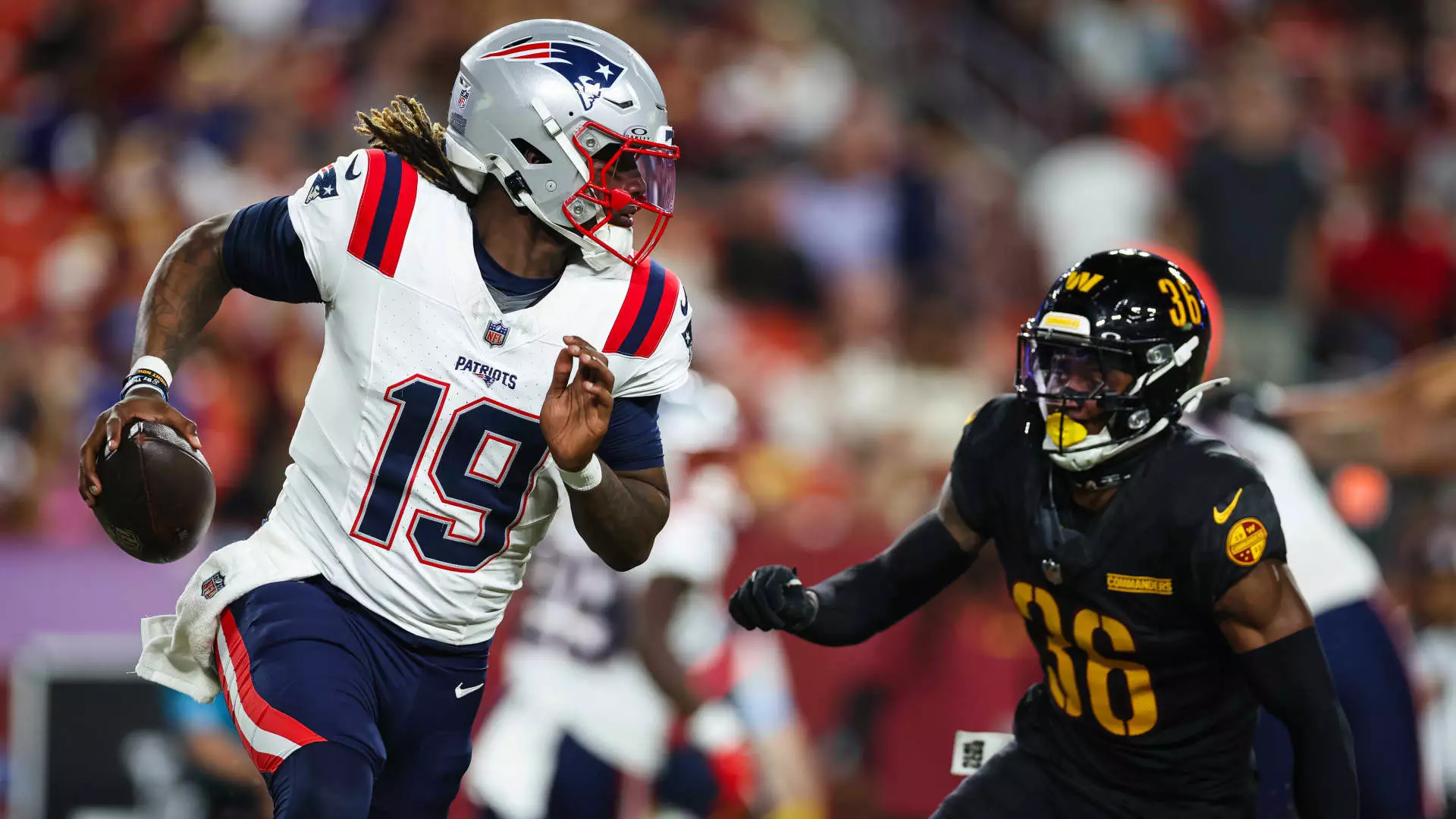As football season kicks off, the anticipation for record-breaking betting numbers is high. Projections estimate that U.S. adults will wager a staggering $35 billion this NFL season, showcasing a significant increase from last year’s $26.7 billion. With the legalization of sports betting in 38 states and Washington, D.C., the industry is thriving. States like Maine, North Carolina, and Vermont have recently joined the bandwagon, allowing sports betting operators to launch in their regions. Court rulings have also opened up opportunities for established entities like Hard Rock International to reenter the sports betting arena in places like Florida.
Despite the optimistic growth projections for the sports betting industry, the stock market doesn’t seem to reflect the same sentiment. Shares of major players like DraftKings, Penn, Caesars, and MGM Resorts have all seen negative trends this year. Flutter, the owner of FanDuel, is one of the few exceptions with a 19% increase in its stock value. The disparity between the industry’s revenue potential and stock market performance raises questions about the underlying factors driving this misalignment.
Recognizing the competitive landscape and the need to stand out, sportsbooks are focusing on innovative strategies to attract new customers and retain existing ones. The NFL season serves as a pivotal moment for launching new technology and creative wagering options that appeal to players. FanDuel, the leading sportsbook in the nation, has partnered with YouTube to offer a unique “Sunday Ticket” promotion where players can access out-of-market NFL games with a $5 wager. By integrating features like app design enhancements and expanded betting options, FanDuel aims to enhance the user experience and drive engagement.
With the entry of newcomers like Fanatics Sportsbook into the industry, the competition has intensified. Leveraging its existing database of 100 million sports fans, Fanatics focuses on customer acquisition by rewarding users with merchandise and collectibles. The recent acquisition of PointsBet’s U.S. operations and technology has bolstered its presence in 22 states, demonstrating rapid growth and expansion. By hosting events like Fanatics Fest NYC, the company aims to connect with customers on a personal level and foster brand loyalty.
Looking ahead, the sports betting industry faces both opportunities and challenges. DraftKings has positioned itself as a market leader, leveraging the NFL’s popularity to drive engagement and increase bets. However, recent setbacks like the decision to withdraw a plan to tax customers in high-tax states raise concerns about the company’s financial performance. Penn Entertainment, with its ESPN Bet partnership, aims to capitalize on media integration to enhance user engagement and drive revenue growth. The successful launch of a single mobile wallet in Nevada by BetMGM highlights the industry’s focus on enhancing user experience and convenience.
The sports betting landscape in the U.S. is witnessing unprecedented growth and innovation. As key players adopt new strategies to attract customers and enhance their offerings, the industry is expected to evolve rapidly. With the intersection of technology, sports, and entertainment, the future of sports betting holds promise for both industry stakeholders and consumers alike.

